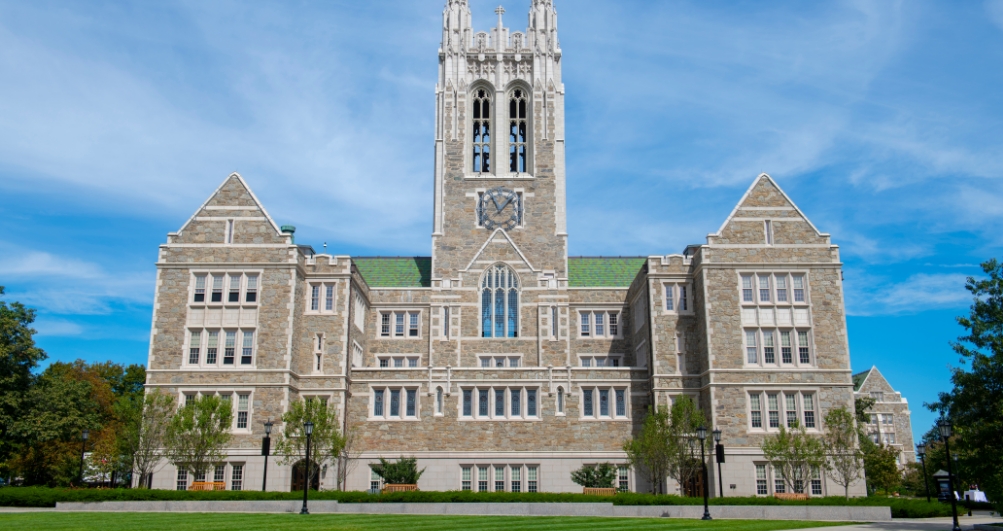North Dakota is among the best places to study due to its high-quality education, low cost of living, and friendly communities. North Dakota's economy is also expanding, leading to a strong job market and numerous career opportunities.
When looking to further your education, there are many colleges in North Dakota with beautiful sceneries, the right equipment and infrastructure, and a wide variety of programs to consider. Read on to discover some of the best colleges in North Dakota in 2023 (in no particular order), including their size, acceptance rate, and notable degree programs.
North Dakota State University
Serving more than 10,000 undergraduate students, North Dakota State University (NDSU) is among the largest schools in the state. It's located in Fargo, North Dakota, and has an acceptance rate of 94% and a retention rate of 80% - meaning most students love it here.
North Dakota charges $10,168 for in-state students and $14,471 for out-of-state students. Notable degree programs offered on campus include Agricultural and Biosystems Engineering, Anthropology, Animal Science, Applied Economics, Art, Computer Science, Business, and more.
Besides studying, students can participate in various extracurricular activities like athletics - football, basketball, baseball, wrestling, and golf. The university also has over 300 clubs and student organizations you can join to connect with peers and enjoy your hobbies.
University of North Dakota
Founded 1883 in Grand Forks, the University of North Dakota (UND) is the oldest public research university in North Dakota. It was formed even before the North Dakota state was established, which showcases its rich history and academic prowess.
Students of the University of Dakota pay average tuition fees of $12,847. Currently, the university has about 13,000 students in nearly 400 programs. Notable programs offered at the institution include Aerospace Studies, Computer Science, Economics, Biology, and Biomedical Engineering.
The school also has a 43% four-year graduation rate, and its graduates earn an average of $57,800 after 10 years. University of Dakota's admission rate is 87%, while the retention rate is 80%.
Away from studies, the University of Dakota has over 260 student clubs and organizations. And if you're a sports person, you can participate in sporting activities like athletics, basketball, soccer, volleyball, and baseball.
Minot State University
Minot State University began in 1913 to train teachers in Northwestern North Dakota. Since then, the school has grown to offer numerous programs, including Accounting, Applied Statistics, Bioinformatics, Chemistry, and Computer Studies.
The university has a total student enrollment of about 2,700, of which a majority are full-time undergraduate students. The student-to-faculty ratio stands at 11:1, meaning learners receive individualized attention from teachers. Minot State University has an admission rate of 77%, and students pay an average cost of $12,205 per year.
Minot State University also supports sports activities like hockey, soccer, wrestling, basketball, and baseball, enabling students to keep fit during their stay at the school.
University of Mary
The University of Mary is built on a solid religious foundation. Its history can be traced back to 1959 when it was opened by the Benedictine Sisters to provide degrees in Education and Nursing. Today, the University of Mary offers many more programs, including Chemistry, Biology, Business, Accounting, and Catholic Studies.
Apart from regular classes, the University of Mary also provides evening and online degrees - mainly targeting working adult students. The school's tuition fees vary depending on the program, but first-year undergraduate students pay an average of $19,830. The University of Mary has a rolling admissions policy, meaning you can apply at any time and receive feedback in about two weeks.
The University of Mary has an 80,000-square-foot wellness center that students can use to keep fit. Intramural sports like sand volleyball, ultimate frisbee, and flag football are also available at the school.
Bismarck State College
Found in Bismarck, North Dakota, Bismarck State College is known for its degrees in technical areas like Nuclear Power Technology, Power and Processing Plant Technology, and Renewable Energy Technology. Other notable four-year degree programs include Mechatronics Engineering Technology, Operations Management, Cybersecurity, and Information Technology.
Students at Bismarck State College pay an average tuition of $5,059. The student-to-faculty ratio stands at 14:1. And graduates from BSC earn an average of $53,600 ten years after graduation.
With more than 12 athletics programs, including popular games like volleyball, wrestling, and basketball, students are assured of entertainment outside the classroom.
Valley City State University
With an admission rate of 81%, Valley City State University offers some of the best programs at a low cost. Its notable undergraduate programs are Liberal Arts, Education, Computer Information Systems, Environmental Science, and Mathematics. Online programs are also available, allowing you to sign up and learn from anywhere.
Valley City State University's students pay an average tuition fee of $5,738 annually. In-state tuition fees cost about $7,942, while out-of-state students spend an average of $12,532. The school's graduates earn an average of $41,700 per year.
VCSU's students can access counseling, health, and other support services. Sports activities like athletics, basketball, and soccer are also available at Valley City State University.
Mayville State University
Mayville State University (MSU) is a public education institution in Mayville, North Dakota. It has about 1,145 undergraduates. Students pay an average tuition fee of $6,452 per year.
The school's student-to-faculty ratio is 14:1. MSU offers over 80 programs, including Education, Arts, Science, Agribusiness, and Mathematics. The university has an acceptance rate of 53%. It also has small class sizes, making it easier for students to establish friendships and connect with faculty members.
Dickinson State University
With a 99% acceptance rate, Dickinson State University can help you follow your desired career pathway. The school charges an average tuition of $8,122 for residents of North Dakota and $9,942 for non-residents.
Dickinson State University has numerous programs for applicants to choose from, notable ones being Communication, Agricultural Studies, Arts, Science, and Education. The university's graduates earn an average of $49,300 ten years after graduation.
University of Jamestown
The University of Jamestown is a private higher education institution in North Dakota. The school has some of the smallest classes of any university - with the average size being 12 students. The average tuition is $9,987, but most students at the University of Jamestown receive some form of financial aid.
The university has an acceptance rate of 72% and a student retention rate of 73%. Some programs available at the University of Jamestown are Business Administration, Engineering, Communication, and Criminal Justice.
Williston State College
Situated alongside the Missouri River, Williston State College's mission is to bring change by providing life-long education pathways to students in North Dakota. The college offers thirteen technical programs, like Business, IT, Massage Therapy, and Agriculture.
Williston State College has a 250,000-square-foot on-campus recreational center and supports sports activities like basketball, volleyball, and soccer. Students can also connect with peers by joining various clubs, including Active Minds, Art Club, Astronomy Club, and Esports.
Honorable mentions
Here are some other top schools making an impact in North Dakota.
- Dakota College at Bottineau. It started in 1906 to promote the growth of trees. Today, the school has expanded to offer different degree programs like Healthcare, Wildlife, Photography, and Information Technology.
- Lake Region State College. With a unique Community Paramedicine program, Lake Region State College equips locals with skills to assist healthcare professionals during emergencies. Students can also enroll in associate degree and certificate programs like Applied Science, Nursing, and Information Technology to build their future careers.
- Turtle Mountain Community College. Established in 1972, Turtle Mountain Community College offers bachelor's degree programs in Arts and Science. Students can also take shorter certificate courses like Plumbing Technology, Welding, Web Design, Concrete Technology, and Heavy Machine Operation.
- Cankdeska Cikana Community College. Cankdeska Cikana Community College seeks to promote student independence and self-sufficiency. It offers 12 associate degree and certificate programs, with notable ones being Carpentry, Social Work, Early Childhood Education, and Business Administration.
- United Tribes Technical College. Located in Bismarck, North Dakota, United Tribes Technical College offers various technical programs, including Automotive Technology, Heavy Equipment Operations, Welding Technology, and Graphic Design.
- Sitting Bull College. Sitting Bull College is situated in Fort Yates, North Dakota. It has an open admission policy, meaning students can enroll at the institution provided they meet basic requirements. Notable programs available at the institution are Criminal Justice, Nursing, Social Work, and Veterinary Technology.
Navigate North Dakota's best colleges with College Rover
The North Dakota University system has some of the best accredited colleges in the United States. And with so many institutions available, you need a credible source of information to help you find the right school.
College Rover can help you research different schools, including their programs, extracurricular activities, clubs and organizations, acceptance rates, and more. Get started today!
College Rover gets the majority of its data directly from the U.S. Department of Education (DOE). The DOE publishing schedule "lags" the most current data which some colleges post on their official websites. This may cause there to be a difference in the data you see on College Rover and an individual college website. College Rover's website is updated as the DOE data becomes available and is configured for the College Rover website.







.jpg)


.jpg)











